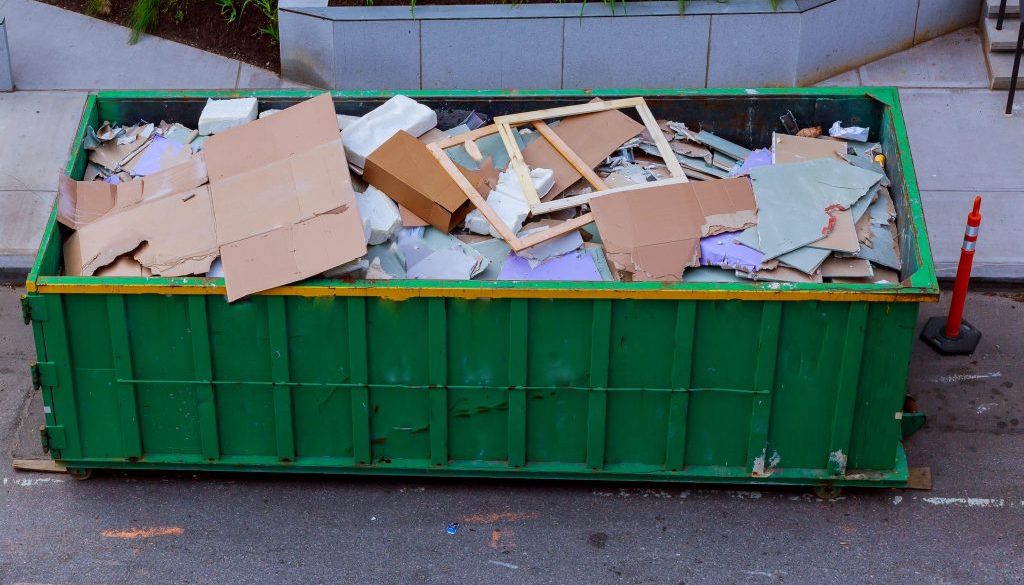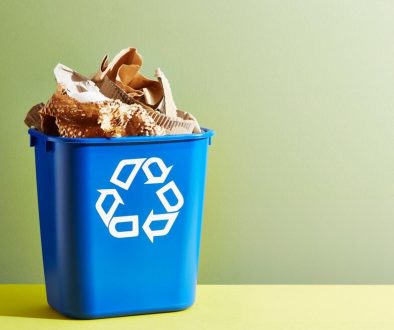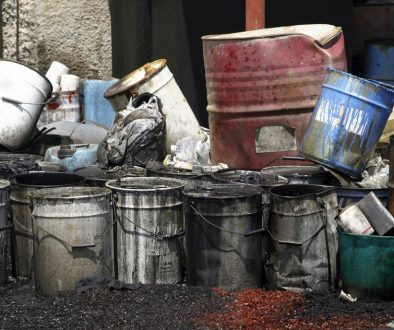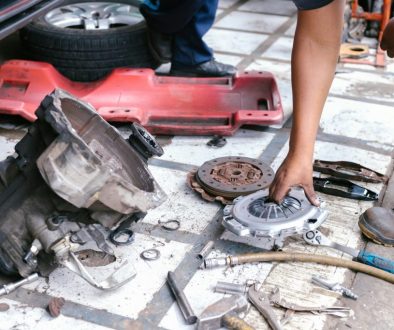Construction projects inevitably produce waste materials that need to be handled appropriately. While a significant portion of the waste generated is relatively harmless, certain types of waste are considered hazardous and pose considerable risks to human health and the environment if not disposed of properly. Hazardous waste is defined as any waste material that can cause harm to people, animals, or the environment due to its chemical or physical properties. Examples of hazardous waste produced during construction projects may include asbestos-containing materials, contaminated soil, lead-based paint, chemicals, and solvents, among others.
In this blog post will discuss the importance of proper hazardous waste disposal during construction projects, the risks associated with improper handling and disposal, and the role of professional skip hire services in ensuring safe and compliant waste management.
Common Types of Hazardous Waste in Construction
Understanding the various types of hazardous waste generated during construction projects is essential for establishing effective waste management plans. Some common hazardous waste materials found on construction sites include:
- Asbestos: Asbestos-containing materials, or ACMs, can be found in a variety of building materials, such as insulation, roofing, and flooring tiles. When disturbed, asbestos fibres can become airborne and pose significant health risks, including fatal lung diseases.
- Contaminated Soil: Soil contaminated with heavy metals, Thischemicals, or petroleum products can pose environmental hazards, particularly if mishandled or disposed of inappropriately.
- Lead-Based Paint: While the use of lead-based paint has been significantly reduced in recent years, older buildings undergoing renovation or demolition may still contain this hazardous material. Lead exposure can lead to serious health issues, especially for young children and pregnant women.
- Chemicals and Solvents: Various chemicals and solvents used during construction, such as paint thinners, adhesives, and cleaning agents, are considered hazardous waste and require proper disposal methods to prevent contamination and health issues.
Legal Requirements for Hazardous Waste Disposal
In the UK, hazardous waste disposal is governed by a number of regulations and guidelines, including the Environmental Protection Act 1990, the Hazardous Waste Regulations 2005, and the Control of Asbestos Regulations 2012. These regulations mandate construction companies and contractors to:
- Identify and classify hazardous waste materials on site and ensure proper storage and handling methods.
- Engage a licensed waste carrier to transport hazardous waste to an authorised disposal facility.
- Complete and maintain accurate records of hazardous waste disposal, including consignment notes and waste transfer notes.
- Implement waste management plans and policies aimed at minimising the production of hazardous waste and promoting the safe disposal and recycling of such materials.
Best Practices for Managing Hazardous Waste on Construction Sites
- Identify and Categorise Hazardous Waste: Effective hazardous waste management begins with the identification and categorisation of hazardous materials present on the construction site. This enables the development of a comprehensive waste management plan that outlines proper handling, storage, and disposal procedures for each type of hazardous waste.
- Provide Adequate Training: Ensuring that all staff members working on the construction site are trained in hazardous waste management is crucial for maintaining safety and compliance. Workers should be educated about the types of hazardous waste materials they may encounter, safe handling practices, and procedures for reporting incidents.
- Safely Store Hazardous Waste: Hazardous waste materials should be stored separately from non-hazardous waste and secured in clearly labelled, leak-proof containers to prevent spills or contamination. Efforts should be made to minimise on-site storage of hazardous waste and expedite its removal to an authorised disposal facility.
- Hire Professional Skip Services: Engaging professional skip hire services with expertise in hazardous waste disposal, like Enviro Skip Hire, can significantly streamline the waste management process. These providers are knowledgeable about the relevant regulations, possess the necessary licenses and certifications, and adhere to best practices for safely transporting and disposing of hazardous waste materials.
The Role of Skip Hire Services in Hazardous Waste Management
Professional skip hire services play a vital role in ensuring safe and compliant hazardous waste management during construction projects. These companies offer a range of benefits, including:
- Expert Guidance: A reliable skip hire service can provide expert advice on the appropriate handling, storage, and disposal methods for hazardous waste materials, ensuring that your construction project remains compliant with relevant regulations.
- Collection and Disposal: Skip hire companies are responsible for collecting and transporting hazardous waste materials from the construction site to an authorised disposal facility. This ensures that your waste is managed in a legally compliant and environmentally responsible manner.
- Record Keeping and Documentation: Reputed skip hire services will help you maintain accurate records of hazardous waste disposal, including consignment notes and waste transfer notes, ensuring that your construction project complies with regulatory requirements.
- On-Site Support: To facilitate effective waste management on the construction site, skip hire services can provide on-site support, such as delivering and placing designated skips for hazardous waste materials. They can also assist with waste segregation to ensure that different types of waste are managed appropriately.
Conclusion
Proper disposal of hazardous waste during construction projects is of utmost importance for ensuring the safety and well-being of workers, residents, and the environment. By following legal requirements and best practices for hazardous waste management and partnering with professional skip hire services like Enviro Skip Hire, construction companies can successfully mitigate health risks and environmental impacts associated with hazardous waste disposal. With the right strategies in place, construction projects can operate smoothly and efficiently while maintaining an unwavering commitment to sustainability and regulatory compliance.




